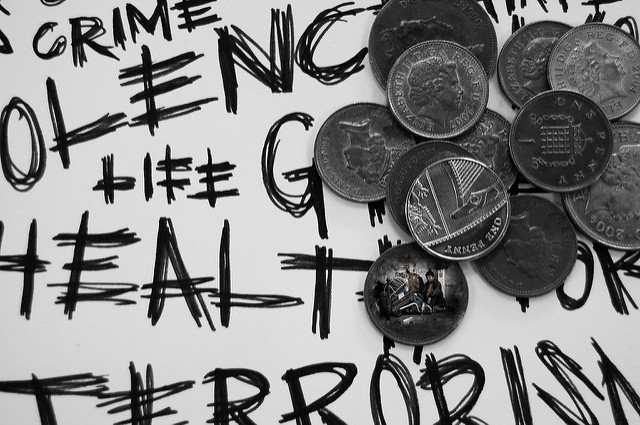
Will The Tax Bill Lead to “Sham Churches”?
- By Derek Welch --
- 04 Dec 2017 --

Provisions in the Bill Create Loopholes for Economic Exploitation
The tax bill passed on Friday. While many opponents of the bill are attacking it for eliminating many economic protections for lower and middle classes, one particular provision has drawn attention for its implications for religion and the separation of church and state.
Will The Tax Bill Lead to “Sham Churches”?[/tweetthis]
The bill repeals the Johnson Amendment. This amendment did not allow any non-profit organization to endorse or oppose political candidates. Religious trusts, charities, and buildings, which receive billions in tax-exemptions, are included in this group.
The Johnson Amendment has long been opposed by evangelical Christians, with over 90% agreeing that it should be eliminated. Evangelicals are one of President Trump’s staunch supporters and President Trump made the elimination of the Johnson Amendment one of his early goals when he became president.
79% of the American public did not want the repeal. Most of the reasons were uncertainty about the separation of religion and politics. But another group has was very vocal about repeal. Religious Organizations. The National Council of Churches, United Methodist Church, and the Baptist Joint Committee for Religious Liberty all spoke out about repeal being a once-in-a-generation danger to their organizations.
The reasoning is this: if you want to donate to support a candidate you are limited by how much you can directly give. So you give money to a Political Action Committee, which then gives money to the candidate. The problem is, you have to pay taxes on the money you contribute. But if you give money to a church that is tax deductible. If that church is able to officially support candidates by contributions, well now you can donate money and have it be tax deductible. This increases the incentive for gigantic increases in money into politics, which has been routinely criticized as anti-democratic.
In addition, organizations are fearful of being forced to take a side in political battles, potentially distracting them from their focus on faith and may lead to a decrease in donations for being neutral or money being shifted to other religious organizations that become more politically active.




















